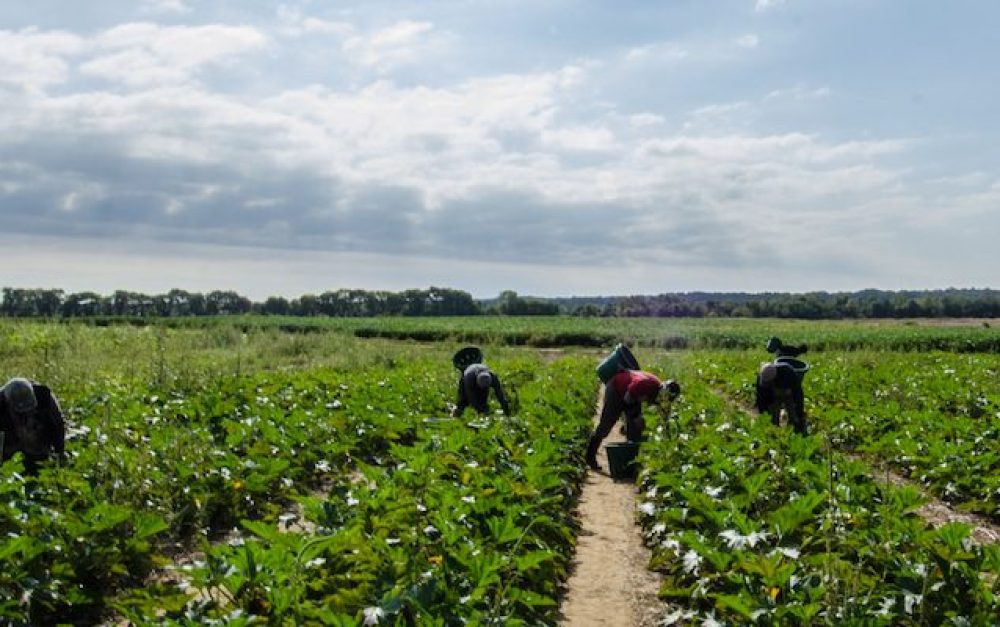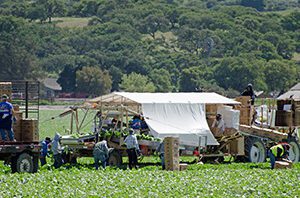Victory: Ruling protects public, workers, from pesticide poisoning
For Immediate Release: March 22, 2018
Washington, D.C. — In a major win for farmworker and health groups, the U.S. District Court for the Northern District of California ruled late Wednesday the Environmental Protection Agency (EPA) illegally delayed implementation of key pesticide rules that in part prevent minors from working with the most dangerous pesticides.
Besides requiring applicators to be at least 18-years-old, the revised 2017 Certification of Pesticide Applicators (CPA) rule also improves the quality of training materials, and says certified pesticide applicators must be able to read and understand the instructions. The main purpose of the CPA rule is to protect workers and the public from poisonings, by ensuring that those who handle the most dangerous pesticides are properly trained and certified.
“We commend the court for recognizing that this important pesticide safeguard is needed to prevent injury to farmworkers and the public,” said Stacey Geis, Earthjustice managing attorney. “This ruling puts EPA Administrator Scott Pruitt on notice that the courts are going to be scrutinizing any rule that reduces health protections for farmworkers.”
After years of reviews, EPA published the revised CPA Rule in the last days of the Obama Administration, updating for the first time in years how applicators of restricted use pesticides, or RUPs, are certified. RUPs are the most toxic and dangerous pesticides on the market, and can cause serious injury or death if they are improperly handled. But the then incoming Trump Administration quickly and quietly delayed the rule, while providing the public only four days to comment on the delay.
The move prompted health and farmworker organizations represented by Earthjustice and Farmworker Justice to file suit. “Our case was clear. There is no justification for delaying common-sense measures to prevent pesticide poisonings and deaths,” said Virginia Ruiz, director of occupational and environmental health at Farmworker Justice. “EPA’s blatant violation of the law jeopardizes public health.”
In its ruling, the court noted that before the delay, the EPA made numerous findings of the inadequacy of the old regulations as they relate to RUPs, as well as the threat RUPs posed to people, particularly farmworkers. The judge also sent a strong message to the EPA by rejecting all the agency’s delays for failing to properly notify the public, and allow for comments. The court declared the original March 6, 2017, date as the effective date, making its ruling effective immediately.
“Frequent exposure to agricultural chemicals combined with inadequate training undermine health and safety,” said Ramon Ramirez, president of Pineros y Campesinos Unidos del Noroeste. “We need to do everything in our power to protect pesticide applicators, farmworkers and communities from the most toxic pesticides and the goal of this lawsuit was to do precisely that”
The ruling comes three months after the EPA said it wants to revise crucial parts of the CPA rule, and its sister set of guidelines, the Agricultural Worker Protection Standard. It’s still unclear when the EPA will open the proposed changes for public comments.
“We can’t delay rules that can save lives. At a time when farmworker and immigrant communities are under siege by the Trump Administration, we are delighted that the court’s ruling sided with worker protection,” said Anne Katten of the California Rural Legal Assistance Foundation.
“This is good news for farmworkers, for those who apply pesticides, and for those who live in the rural communities where they are at risk of pesticide exposure,” said Jeannie Economos of the Farmworker Association of Florida. “They deserve nothing less than these important protections.”
According to the EPA, there are about one million certified applicators nationwide. Before delaying implementation, the agency said the revised rule could prevent some 1,000 acute poisonings every year.
“In a victory for the most exposed workers, the court recognized that Scott Pruitt violated the law, putting farmworkers and their children in harm’s way,” said Erik Nicholson, vice president of the United Farm Workers of America.
“We are heartened that the courts are holding Scott Pruitt accountable for this illegal delay,” said Margaret Reeves, senior scientist at the Pesticide Action Network. “Training for the workers who handle the most toxic pesticides in the nation is essential.”
The lawsuit was filed on behalf of Farmworker Association of Florida, United Farm Workers, Pineros y Campesinos Unidos del Noroeste, California Rural Legal Assistance Foundation and Pesticide Action Network North America.
Contacts:
Stacey Geis, Earthjustice managing attorney, 415.217.2040
Virginia Ruiz, Farmworker Justice, 202.800.2520
Ramon Ramirez, President, Pineros y Campesinos Unidos del Noroeste, 503.989.0073
Jeannie Economos, Farmworker Association of Florida, 407.886.5151
Anne Katten, California Rural Legal Assistance Foundation, 916.204.2876
Erik Nicholson, National Vice President, United Farm Workers, 206.255.5774
Paul Towers, Pesticide Action Network, 916.216.1082
###







